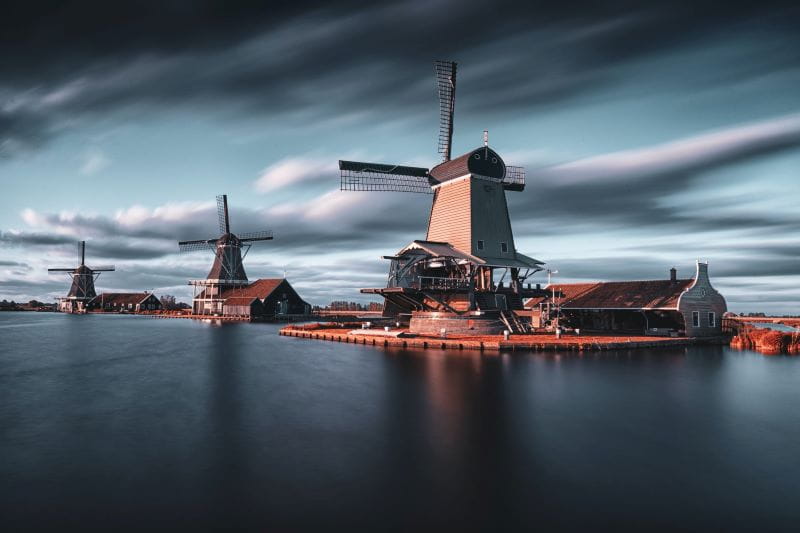Entain acquires BetCity and positions itself in the regulated Dutch gambling market
After many delays and the forced postponement due to the Covid-19 pandemic, the regulated online gambling market in the Netherlands was launched in October 2021. Ten operators were chosen to operate with a license from the Kansspelautoriteit (KSA) comprising online casinos, sports betting, bingo and lotteries. The Dutch market is considered to be very attractive and potentially lucrative for the big European brands. While waiting to obtain a license for its Party and bwin brands, Entain has acquired BetCity, one of the first operators to obtain a license for sports betting.

With the acquisition of the BetCity bookmaker, Entain positions itself as one of the leading operators of the Dutch online casino gaming market. ©Michal Soukup/Unsplash
Dutch online betting market opens with many delays
For some time now, the Netherlands has been considering the regulation of the online gambling market . Although online gambling was prohibited, this did not prevent players from being able to enter legal operators with licenses from Malta or Gibraltar .
The legislation proposed in 2019 was delayed for almost two years until finally the Gambling Law took course and the market was able to open in October 2021. Initially there were 10 authorized operators , including the state-owned lottery company with TOTO Online and Holland Casino. International operators such as bet365, Tombola, BetEnt, Bingoal or GGPoker were also awarded.
The licensing process in the Netherlands happens to be one of the strictest in Europe. The initial 28 applicants had to pay a fee of 48,000 euros. In October 2021. brands such as Betsson, Kindred, LeoVegas, 888 or Entain stopped accepting Dutch players under the threat that disciplinary action could be taken against him. In fact, it happened with the German bookmaker Tipico fined more than 500,000 euros.
Waiting for a license... better to buy an operator who already has it
Entain has been waiting for a license in the Dutch online gambling market for a very long time. Although it all seems that the brands bwin and Party will be licensed by the end of the year . In the meantime, the British company formerly known as GVC Holdings it has taken action and acquired the online bookmaker BetCity.
BetCity is the brand of BetEnt B.V. , Italian operator of Sports Entertainment Media B.V., one of the first to acquire a license from the Dutch authority. In regulated online gambling markets, licenses become a precious commodity subject to the laws of supply and demand.
The operation has been encrypted in 300 million euros for the entire share capital of BenEnt B.V., although this estimate is subject to additional payments that depend on the operator's results in the coming years. Despite the fact that Entain expects bwin to achieve a license by the end of this year, the acquisition of the Dutch bookmaker is considered to complement the group's strategy in the country of tulips. BetCity has come to have a 20% market share at the end of last year.
The experience that BetCity can bring is very important for the development of Entain's brands in the Netherlands in the short term. It will put Entain as one of the leading operators in the Dutch market .
“We are delighted that BetCity is joining Entain and we are excited about the important opportunities offered by the new regulated Dutch market. This acquisition will provide customers with an even better experience, as we combine BetCity's local expertise and brand with Entain's market-leading, customer-centric platform. This transaction reinforces our growth strategy of operating in attractive regulated markets.” – Jette Nygaard-Andersen , CEO of Entain, at press release
How attractive is the Dutch market?
There has been quite a bit of speculation about the size of the Dutch market. Of the markets that remained unregulated in Europe, the Netherlands was undoubtedly the most attractive. With the granting of licenses an estimate of 814 million euros of gross revenue had been reached during the first year. This figure would place the Dutch market very close to the Spanish according to the figures provided by the DGOJ .
What it is about in the regulated market is the channeling of these revenues so that they are paid taxes in the Netherlands account for 29% , which is a fairly high tax rate. In New Zealand it is at 20%.
However, the initial estimated figures seem exaggerated. Of the more than one and a half million players who were estimated to participate in regulated online games, the number has remained at 634,000 during the first 5 months . If this trend continues, it seems unlikely that gross revenues will reach the figure of 800 million euros in its first year.


